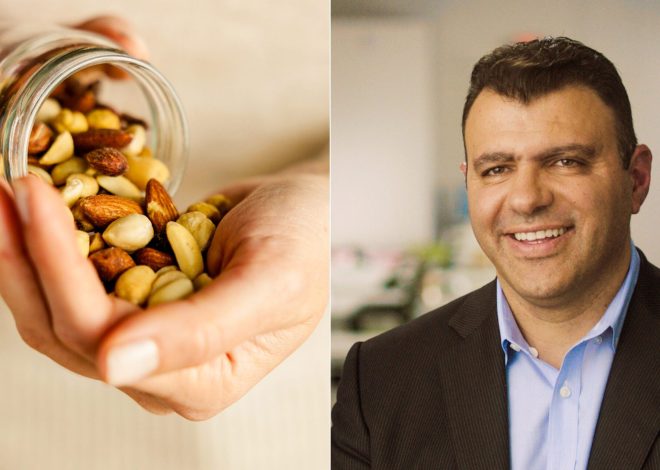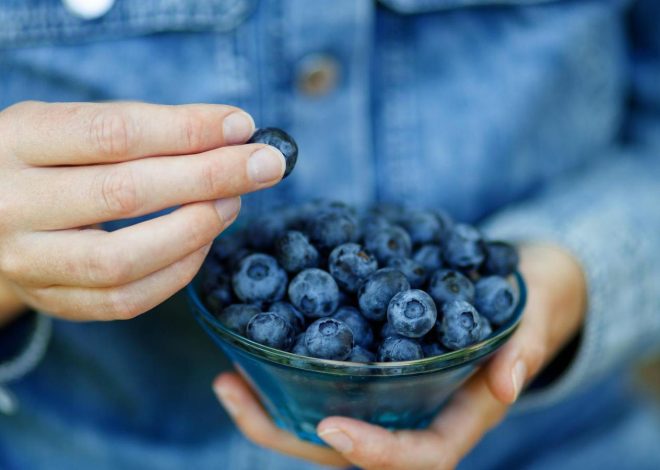
Nutrition: Don’t be afraid of over-fertilized vegetables – nitrate protects the circulatory system and prevents tumors
WWhen they hear nitrate, nutritionists shake their heads in concern: the mineral is non-toxic, but in the intestines it can turn into harmful nitrite. This in turn not only interferes with the red blood cells’ ability to transport oxygen. Above all, according to the Federal Office for Risk Assessment, it is a trigger for cancer.
This frequently repeated message caused conflict for health-conscious people: if you want to eat a vegetable-rich diet, so-called leafy and root vegetables are the basic ingredients in the kitchen. But they, namely spinach and chard, lettuce, carrots and beetroot, store a lot of nitrate. Especially when the farmers are too generous with the fertilizer.
Now everything seems to be different: New research from Edith Cowan University in Joondalup, Australia, has shown that nitrate from plant sources reduces mortality. While nitrate from other sources such as animal foods and tap water shortens life on average.
At first glance, this is confusing, especially for those who paid attention in chemistry. Because one nitrate and the other are chemically identical: negatively charged ions consisting of one nitrogen and three oxygen atoms. But what is the crucial difference between nitrate from plant-based or animal-based foods?
First, a quick look at the data: The study was published in the “European Journal of Epidemiology”. Data from Denmark were evaluated, from 52,247 participants in the nutritional cancer and health study there. This followed the life and death of those registered for an average of 24 years. The researchers led by epidemiologist Nicola Bondonno linked the times and causes of death with eating habits. There is a mathematical uncertainty here: the researchers had to estimate how much nitrate people consumed based on the information on the foods they preferred.
The result is nevertheless clear: a moderate to high intake of plant-based nitrate reduced overall mortality by 17 percent. Those who ate mainly “green” nitrate lived several years longer on average; they died 14 percent less often from cardiovascular disease, and the figure for cancer was 24 percent less.
Nitrate of animal origin, on the other hand, was associated with a 9 percent higher mortality rate. A tendency toward products containing nitrite, typically those made with nitrite curing salt, such as sausage and bacon, increased overall mortality by 25 percent. Deaths from cardiovascular disease rose by 29 percent, and those from cancer by 18 percent. The study can therefore confirm that nitrite is the real problem. Sausage, which already contains nitrite, is almost three times more deadly than meat, whose nitrate must first be converted into nitrite in the body.
The explanation for what happens to the plants is as complex as the biochemistry of food. Vegetables do not just contain nitrate. They also contain “a whole range of protective substances that are associated with a lower risk of cardiovascular disease, cancer and mortality,” according to the Australian university’s press release.
One possible explanation for the paradoxical study results is that the plant ingredients counteract the harmful effects of nitrate. It is also possible that with plant-based food, the reaction in the intestine that makes nitrate dangerous does not take place at all: In order to do so, it has to react with other molecules in the food pulp that take away an oxygen atom from it. The plant ingredients could block this reaction.
Study leader Nicola Bondonno has the impression that it is precisely this – the different chemical environment in a food mixture full of plant components – that makes the decisive difference. It is not so much about the nitrite, but rather what becomes of it instead, she explains: “Nitrate can take two different routes when it enters the body. One of them (via nitrite) produces a group of compounds called nitrosamines, which are considered carcinogenic.”
The other way around, a compound called nitric oxide is formed. This improves blood flow, lowers blood pressure and supports cardiovascular health. “The antioxidant compounds found in vegetables force this reaction, which leads to the health-promoting nitric oxide,” explains Bondonno. In this way, the source of the nitrate determines the body’s reaction.
And the Australian health scientist has another important tip for doctors: “Most fears about nitrate consumption stem from concerns about cancer. But one of the most interesting findings is that nitrate from water was more strongly associated with deaths from heart disease.”
In fact, when researchers linked the nitrate content of tap water to the risk of death, a mixed picture emerged: those who drank water richer in nitrates had a higher risk of dying from cardiovascular disease than others, but the risk of dying from cancer remained unchanged. One explanation for this could be that the environment in the digestive tract promotes the reaction of nitrate to nitrite, the disruptive factor for blood cells. But unlike animal building blocks in the food pulp, it does not provide an environment in which nitrite can be converted into nitrosamine.
The university advertised the study with the headline, “Plant nitrate shows a positive effect on human health.” After a closer look at the data, this seems exaggerated and even false. Something else was proven: Eating plants is healthy.

Ethel Purdy – Medical Blogger & Pharmacist
Bridging the world of wellness and science, Ethel Purdy is a professional voice in healthcare with a passion for sharing knowledge. At 36, she stands at the confluence of medical expertise and the written word, holding a pharmacy degree acquired under the rigorous education systems of Germany and Estonia.
Her pursuit of medicine was fueled by a desire to understand the intricacies of human health and to contribute to the community’s understanding of it. Transitioning seamlessly into the realm of blogging, Ethel has found a platform to demystify complex medical concepts for the everyday reader.
Ethel’s commitment to the world of medicine extends beyond her professional life into a personal commitment to health and wellness. Her hobbies reflect this dedication, often involving research on the latest medical advances, participating in wellness communities, and exploring the vast and varied dimensions of health.
Join Ethel as she distills her pharmaceutical knowledge into accessible wisdom, fostering an environment where science meets lifestyle and everyone is invited to learn. Whether you’re looking for insights into the latest health trends or trustworthy medical advice, Ethel’s blog is your gateway to the nexus of healthcare and daily living.







